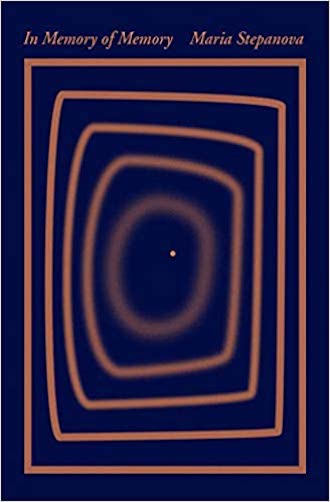Book Review: “In Memory of Memory” — Riven Recollections
By Jim Kates
It is the loss of memories and the meaning of memory that dominate, generating speculations that draw the reader into and through Maria Stepanova’s argument and interpretations.
In Memory of Memory by Maria Stepanova. Translated from the Russian by Sasha Dugdale. New Directions, 400 pages, $17.95.

The Russian writer Maria Stepanova’s poetry reverberates with echoes of memory (“Evil memory, lost memory, holy foolishness”), so it’s not surprising that the prose of In Memory of Memory (translated by Sasha Dugdale) — comprising various and far-reaching family recollections, documents, and vignettes — is, in fact, all about the process and production of memory itself. In the original Russian the title, Памяти памяти, is a tautological echo.
In Memory of Memory therefore is not a “memoir” in the contemporary sense of retracing one person’s life story. It uses its patchwork of documentary and impressionistic essays to give the reader a unified personality, like Montaigne’s essays in their wide-ranging and inward-looking sensibility.
The ostensible subject of the book — its MacGuffin, so to speak — is Stepanova’s own family. It is as if she were sitting down with Henry Louis Gates fashionably “finding her roots,” reaching back three and four generations, negotiating Russian, Soviet, and European life through the 20th century by way of sometimes trivial and sometimes intimate detail.
The story opens with the writer going through the effects of a recently deceased aunt:
Aunt Galya, my father’s sister, died. She was just over eighty. We hadn’t been close — there was an uneasiness between the families and a history of perceived snubs. My parents had what you might call troubled dealings with Aunt Galya, and we almost never saw her. As a result I had little chance to form my own relationship with her. We met infrequently, we had the odd phone call, but toward the end she unplugged her phone, saying “I don’t want to talk to anyone.” Then she disappeared entirely into the world she had built for herself: layered strata of possessions, objects, and trinkets in the cave of her tiny apartment.
Not just the trinkets: it is the process and workings of remembering, and the loss of memories and the meaning of memory, that dominate, that draw the reader into and through Stepanova’s argument and interpretations from beginning to end.
Some things leaped into my memory ticketless, like a kid on a streetcar, usually a legend or a curiosity…. Among these were the stories that could more easily be retold. And how much did it matter anyway if one starch-collared ancestor became a lawyer in the retelling, rather than a doctor?
“But guilt at the missing details,” she immediately adds, “hampered my ability to remember, forced me to put off asking more detailed questions.” As with Montaigne, to read this book is to engage intimately with the writer’s own mind while it examines in real time a more “objective” world around it. This gives pleasure even — or especially — when you disagree. In a chapter on “Selfies and their Consequences,” for instance, Stepanova writes that a “selfie (the most extreme manifestation of the belief in mutability) is born of the need to fix the image in place, and the conviction that the face of today and the face of tomorrow are infinitely different.” I have seen too many adolescent fish-faces to agree with the writer’s blanket assertion here, yet I definitely want to follow where she leads me.

Poet Maria Stepanova. Photo: Sergey Melikhov
It happened that I read In Memory of Memory at the same time as I was reading a biography of Tom Stoppard, and the coincidence reinforces a correlation, a conversation, between those two Jewish writers. It’s difficult to separate the two readings. Perhaps I should have put aside one for the other, but they set up a compelling parallelism — the leaps of the Russian poet might be a script by Stoppard, integrating enigmatic fragments and time-jumps into a coherent and logical whole, suffused with the warmth of real lives, while the documentation of the English playwright’s biographer mines veins of memory.
This Jewishness presents Stepanova (and Stoppard) with a challenge: “The Judaic memory is free from the need to commit everything in history to memory, free to choose the significant and essential, to cut away the inessential.”
Ultimately, for the Russian poet, memory is “beyond repair,” but nonetheless valuable in its disjointedness. And the memory of memory In Memory of Memory proves equally valuable in the connections it forges.
Jim Kates is a veteran of the Mississippi Civil Rights Movement, a contributor to the Mississippi State Museum of Civil Rights, and the editorial co-director of Zephyr Press, publisher of Letters from Mississippi, edited by Elizabeth Martínez.
